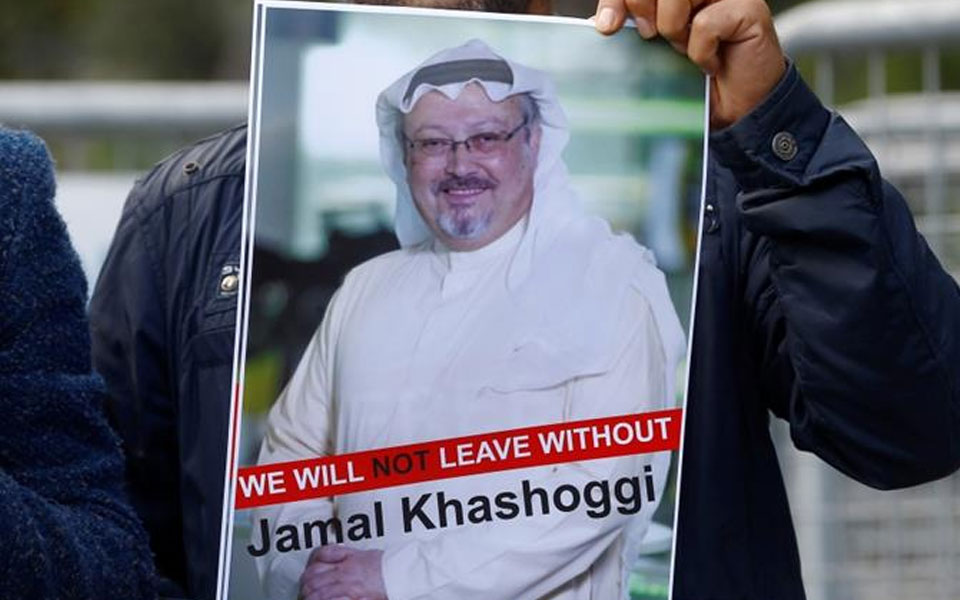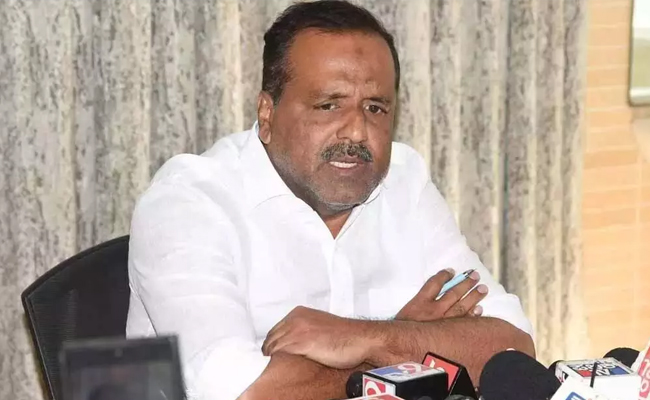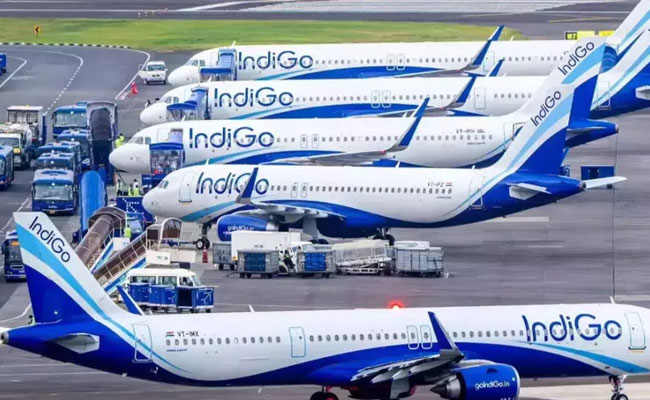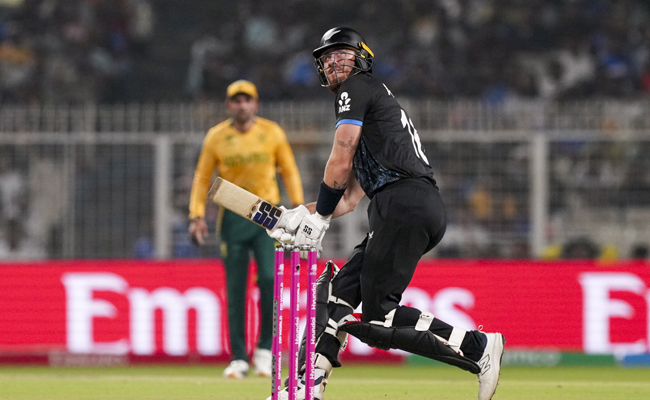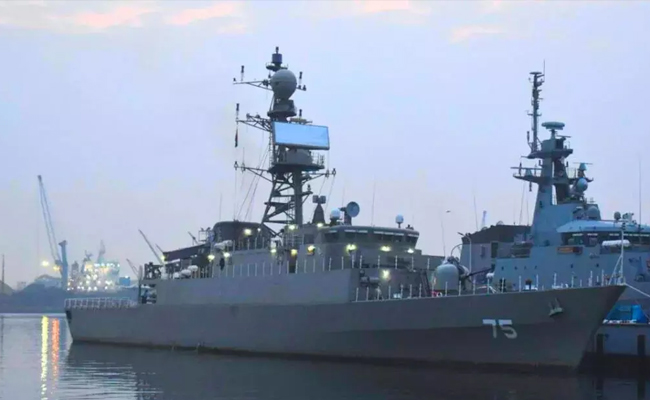Istanbul, Oct 22 : Saudi Crown Prince Mohammed bin Salman called the son of Jamal Khashoggi, the kingdom announced early Monday, to express condolences for the death of the journalist killed at the Saudi Consulate in Istanbul by officials that allegedly included a member of the royal's entourage.
King Salman similarly made a condolence call as international pressure on the kingdom continues to rise, even after it acknowledged on Saturday that the Washington Post journalist was killed Oct. 2 at the consulate under still-disputed circumstances.
Turkish President Recep Tayyip Erdogan has said that he will "go into detail" about the Khashoggi case in a speech in parliament Tuesday, the same day a glitzy investment forum in Riyadh spearheaded by Prince Mohammed is to take place.
Saudi Arabia's explanation that Khashoggi was killed in a "fistfight" and 18 Saudis have been detained has been met with international skepticism and allegations of a cover-up designed to absolve Prince Mohammed of direct responsibility. Turkish media reports and officials say a 15-member Saudi team flew to Istanbul, laid in wait for Khashoggi at the consulate and then cut off his fingers, killed and dismembered the 59-year-old writer.
"Why did these 15 people come here? Why were 18 people arrested? All of this needs to be explained in all its details," Erdogan said.
The state-run Saudi Press Agency announced the calls to Khashoggi's son, Salah, early Monday morning. Statements from the agency said both King Salman and Prince Mohammed express their condolences for his father's death.
The call comes after a leaked photograph apparently taken from surveillance footage shows Maher Abdulaziz Mutreb, a member of Prince Mohammed's entourage on trips to the United States, France and Spain this year, at the consulate, just ahead of Khashoggi's arrival.
Mutreb's name also matches that of a first secretary who once served as a diplomat at the Saudi Embassy in London, according to a 2007 list compiled by the British Foreign Office.
Saudi Arabia so far has not acknowledged or explained Mutreb's presence in Istanbul nor that of a forensics and autopsy expert, also on hand for Khashoggi's arrival at the consulate.
Istanbul's chief prosecutor summoned 28 more staff members of the Saudi Consulate, including Turkish citizens and foreign nationals, to give testimony on Monday, Turkish state broadcaster TRT reported. Prosecutors have previously questioned consulate staff; some Turkish employees reportedly said they were instructed not to go to work around the time that Khashoggi disappeared.
Turkish news agency Anadolu Agency reported Sunday that Khashoggi's fiance, Hatice Cengiz, has been given 24-hour police protection.
Also Sunday, images that were obtained by TRT World, a Turkish news channel that broadcasts in English, showed Khashoggi as he arrived at a police barrier before entering the consulate on Oct. 2. The images, taken from security camera video, show the writer being searched before continuing toward the building.
Saudi Foreign Minister Adel al-Jubeir said on Fox News that Khashoggi's killing was "a rogue operation" and that "we don't know where the body is.'" "The individuals who did this did this outside the scope of their authority," he said.
"There obviously was a tremendous mistake made and what compounded the mistake was the attempt to try to cover up. That is unacceptable to the government." However, a leading U.S. Senate Republican said the Saudi explanation, which followed initial denials from the kingdom that it knew anything about Khashoggi's fate, wasn't credible.
Bob Corker, chairman of the Senate Foreign Relations Committee, said Saturday on CNN's "State of the Union" that he believed Prince Mohammed, the heir-apparent of the world's largest oil exporter, was behind the killing.
The crown prince has "now crossed a line and there has to be a punishment and a price paid for that," Corker said. He also urged Turkey to turn over purported audio recordings of Khashoggi's killing inside the Saudi Consulate in Istanbul. The existence of such evidence has been reported in Turkish media in a series of leaks, though Turkish officials have yet to confirm they have recordings.
"The Turks have been talking more to the media than they have (to) us," Corker said of the NATO ally.
Let the Truth be known. If you read VB and like VB, please be a VB Supporter and Help us deliver the Truth to one and all.
Mangaluru (Karnataka) (PTI): Karnataka Legislative Assembly Speaker U T Khader on Wednesday sought an inquiry after a large number of Aadhaar cards were found on the banks of the Nethravathi River here.
The cards were found at Farangipete in Pudu village of his Mangaluru Assembly constituency.
Khader, in a note to the Project Manager of the Unique Identification Authority of India (UIDAI), Bengaluru, sought immediate intervention and necessary action against those responsible.
In the note dated March 4, he said that local residents noticed the Aadhaar cards along the riverbank on March 3.
Following information received from the public, the Pudu Gram Panchayat president and villagers collected the Aadhaar cards found scattered in the area. They subsequently brought the matter to his attention and the concerned authorities, he said.
Expressing concern over the incident, the Speaker has directed that a thorough investigation be conducted to ascertain how such a large number of Aadhaar cards ended up on the riverbank and to identify those responsible.
He instructed officials to initiate appropriate legal action through the concerned department at the earliest.

